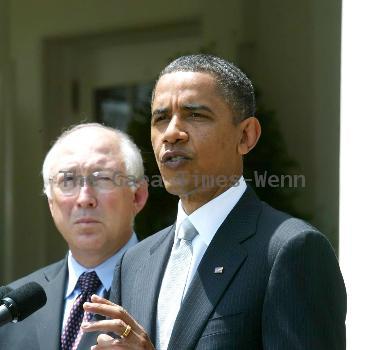Social media, Internet inflames news cycle of Quran burning story
By Jake Coyle, APFriday, September 10, 2010
Social media inflames news cycle of Quran burning
NEW YORK — The swelling story of a tiny Florida church’s plan to burn copies of the Quran is raising questions of news judgment not only for the media, but for Web users and readers, too.
In the social media era, everyone’s a news editor.
Several news organizations, including The Associated Press, have said that they won’t distribute photos or video of Qurans being burned. But even if the media exhibits self-control in covering the story, the Internet almost surely will not.
Should Quran burning demonstrations happen on the anniversary of the Sept. 11, 2001, terrorist attacks — or any other day — it’s likely images will find their way to interested readers online, by way of social media, blogs, e-mail and elsewhere.
That means users will be left to decide if they want to seek out such material, urge its removal or simply ignore it altogether.
Ahead of the planned burning of the Muslim holy book on Saturday, news organizations have been grappling with how to appropriately cover the events, should Rev. Terry Jones go ahead with his plans. Jones has said he won’t follow through with the burning if he’s able to meet in New York on Saturday with the organizers behind a mosque planned near ground zero.
President Barack Obama said Friday that burning the Quran would be contrary to what America stands for and could pose a threat to Americans in uniform.
Like many websites with enormous amounts of content, YouTube counts on the diligence of its users to police itself.
The Google Inc.-owned video site depends on users to flag a video that violates YouTube’s policies. Those policies include removing any video that contains hate speech and incitement to violence. If a video is flagged, YouTube policy enforcers will judge whether the video is indeed in violation of terms and possibly remove it or place a warning page before it.
YouTube would not comment specifically about videos of burning Qurans, but the company said in a statement: “Because YouTube is a platform for free expression of all sorts, we take great care when we enforce our policies. We try to allow as much content as possible on the site and still ensure that our community guidelines are followed.”
Facebook similarly relies on self-regulation. It, too, wouldn’t comment directly about the Quran story, but referred to guidelines established to ensure a “a safe and trusted environment.” The site notes that “we don’t typically take down groups or pages that speak out against countries, religions, political entities, or ideas.”
More than 16,000 people have clicked that they “like” the Facebook page named “International Burn a Koran Day.” It exclaims that “Islam is of the devil.”
The page was reviewed by Facebook but allowed to remain because it doesn’t violate the site’s terms of service. Facebook continues to monitor it.
Many of those commenting on the page have argued against it, and a rival page dubbed “Stop the Burning of the Quran” has attracted more than 13,000 “likes.”
How the plans of a pastor with a very small following in Gainesville, Fla., became national news has been debated by the media and its critics. The origins of the story — which began in Florida and has spread to Afghanistan — have been traced like a disease outbreak.
But Sarah Lacy, a writer at the tech blog Techcrunch, wrote on Thursday that “the media-audience infinite loop,” not the media, should be blamed.
“Social media has given the world a persistent, open conversation,” wrote Lacy. “On stories like this one, media has to choose to respond or not to a story that’s already been legitimized and publicized. This was a conversation before NPR, BBC or any other major news outlet weighed in. Once it has become enough of a conversation that world leaders were having to comment — how does the media not cover that?”
Instead, Lacy suggested readers should simply “stop paying attention” if they want the media coverage to go away.
Tags: Barack Obama, Facebook, Florida, New York, North America, Online Media, Terry jones, United States, Youtube

